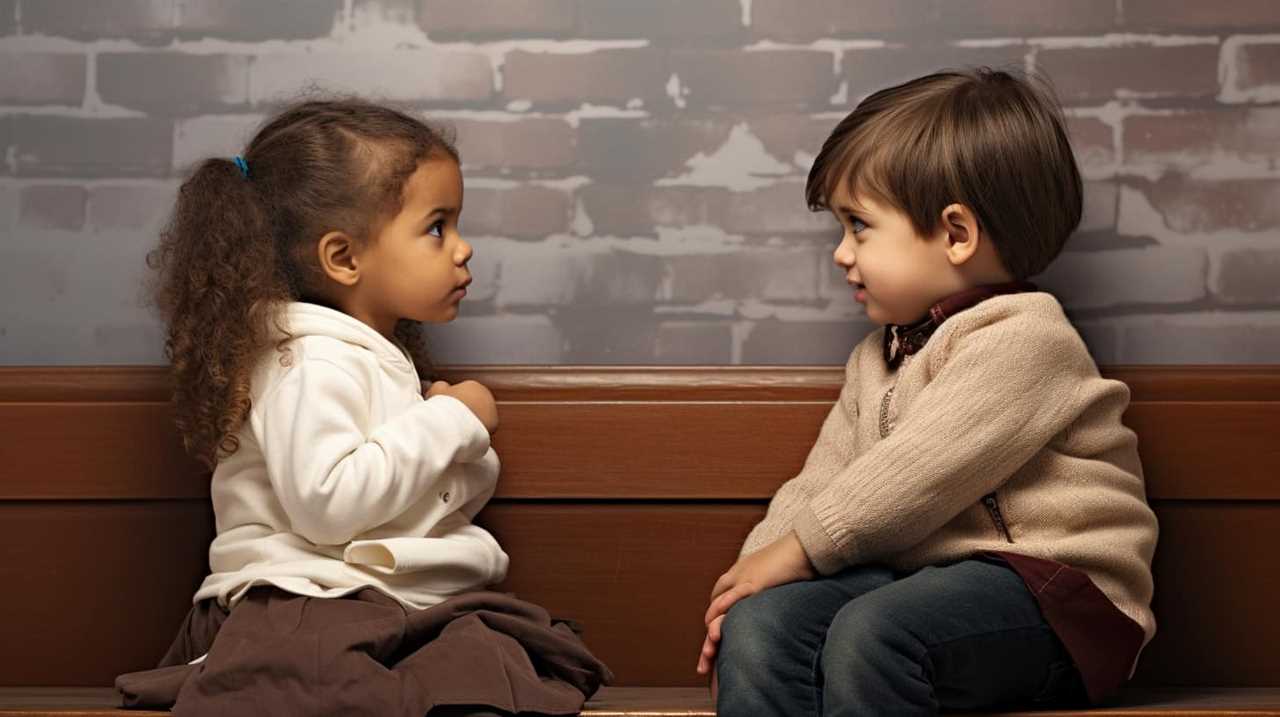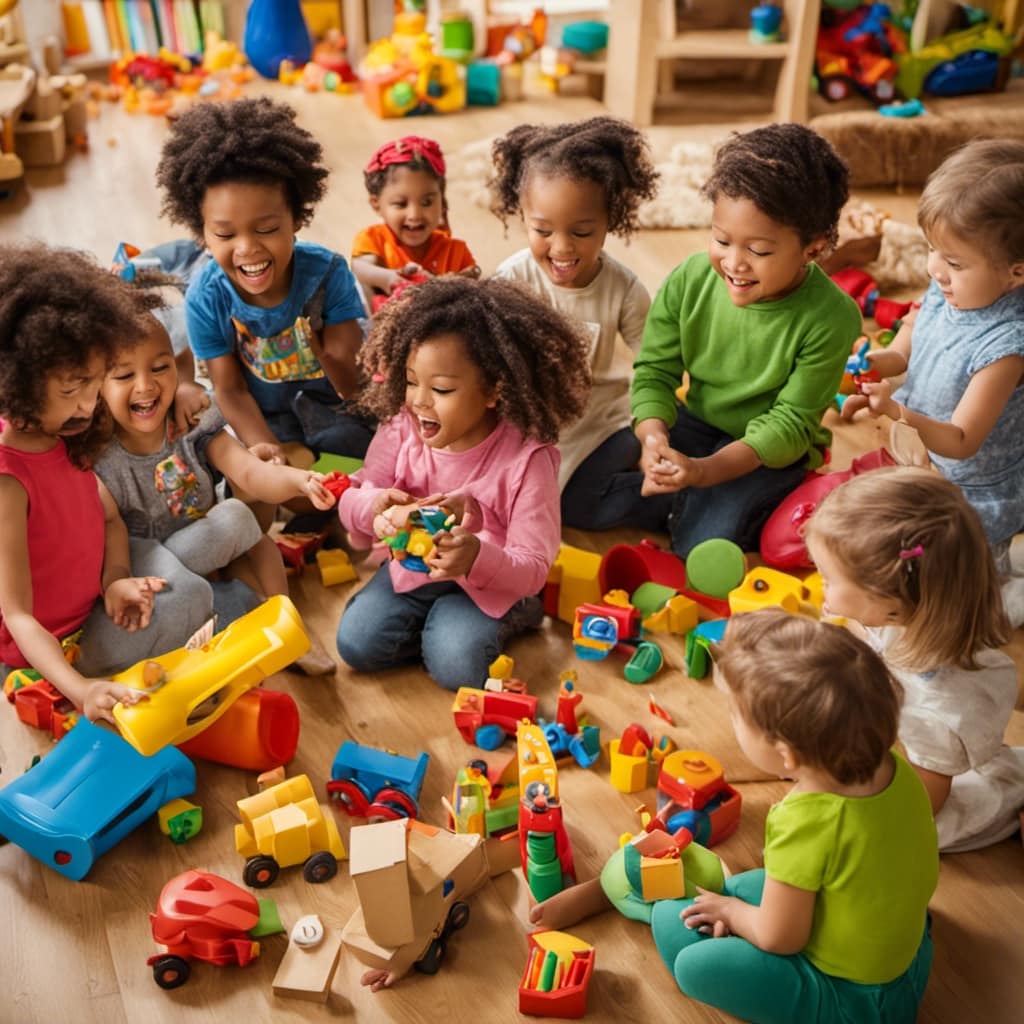We are all familiar with the saying “play is a child’s work,” but did you know that play can also improve cognitive function? Yes, it can!
Educational playthings have been shown to enhance cognitive development, problem-solving skills, language acquisition, fine motor skills, and even creativity and imagination.
In this article, we’ll explore the fascinating research behind the benefits of educational play and how it can help children reach their full potential.
So, let’s dive in and discover how playtime can truly be a powerful tool for learning and growth.

Key Takeaways
- Educational playthings enhance cognitive development and critical thinking skills.
- Language acquisition is prioritized through educational playthings.
- Educational playthings improve fine motor skills.
- Educational playthings foster creativity and imagination.
Cognitive Development
When it comes to cognitive development, we can enhance our children’s brain power by providing them with educational playthings. Critical thinking and memory enhancement are crucial aspects of cognitive development in children.
Educational playthings such as puzzles, building blocks, and memory games can help foster these skills in young minds.
Critical thinking is the ability to analyze and evaluate information to make informed decisions. By engaging in activities that require problem-solving and logical reasoning, children develop their critical thinking skills.
Educational playthings that encourage problem-solving, like jigsaw puzzles and brain teasers, can challenge children’s minds and promote critical thinking.
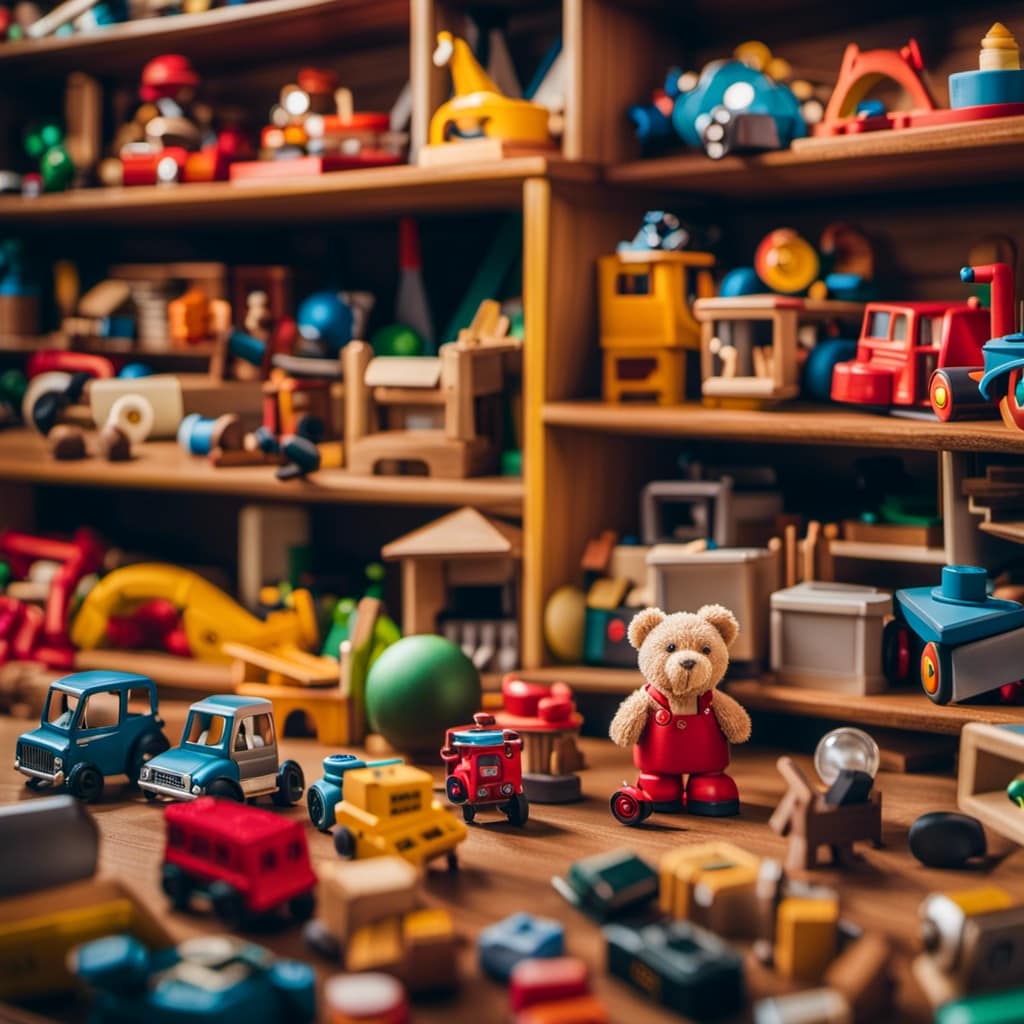
Memory enhancement is another important aspect of cognitive development. Educational playthings that involve memory games, such as matching cards or memory matching games, can improve a child’s ability to remember information and recall it when needed. These activities stimulate the brain and help strengthen memory skills.
Problem-solving Skills
As we continue exploring cognitive development, we can further enhance our children’s brain power by focusing on problem-solving skills through the use of educational playthings.
Developing critical thinking and logical reasoning abilities is crucial for our children to navigate the challenges of the world. Here are three key benefits of incorporating problem-solving skills into their playtime:
-
Enhances cognitive abilities: Problem-solving activities stimulate the brain and promote the development of critical thinking skills. By engaging in puzzles, building blocks, and strategy games, children learn to analyze situations, make decisions, and find creative solutions.
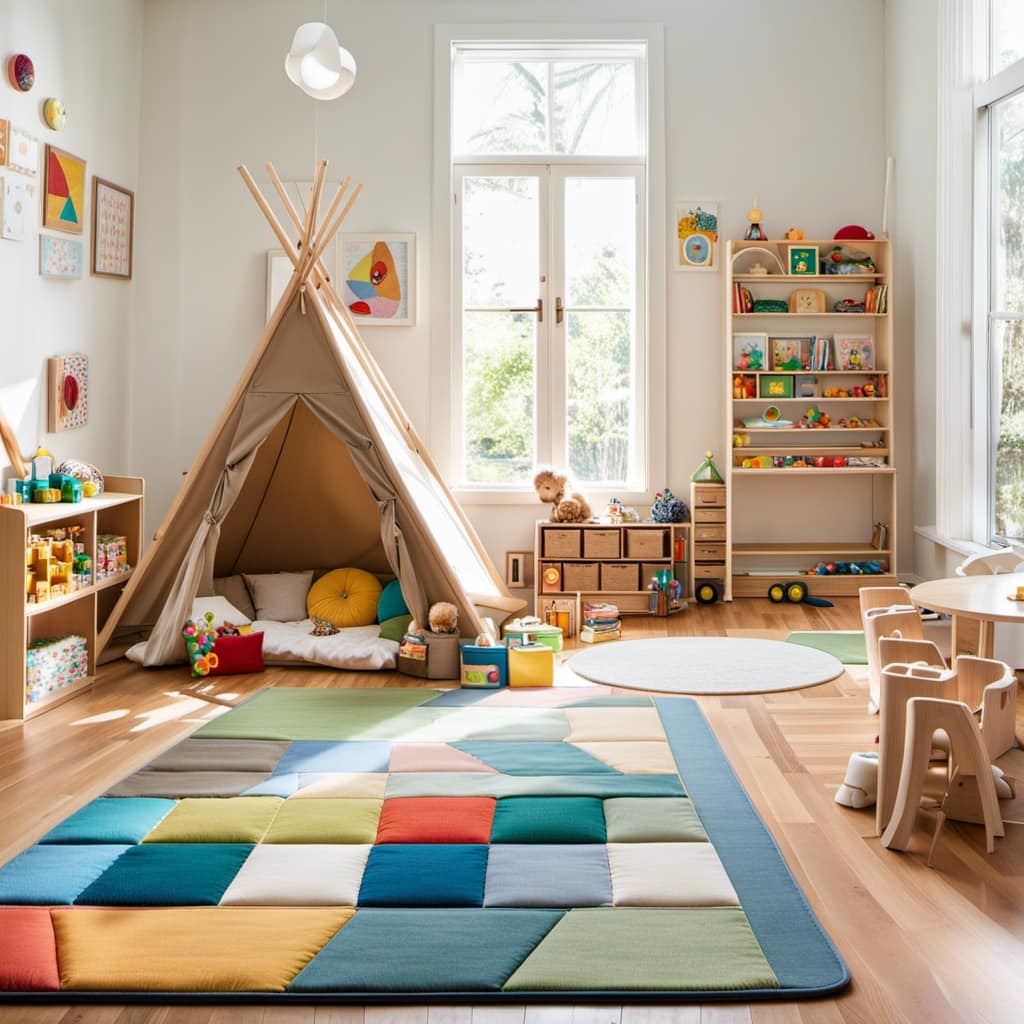
-
Fosters independence and resilience: When children tackle problems on their own, they become more self-reliant and resilient. Educational playthings provide opportunities for them to face challenges, overcome obstacles, and build confidence in their problem-solving abilities.
-
Prepares for real-life situations: Problem-solving skills are essential for success in everyday life. By practicing critical thinking and logical reasoning through play, children develop skills that will serve them well in academic, professional, and personal settings.
Language Acquisition
To foster effective communication and cognitive development, we prioritize language acquisition through the use of educational playthings.
Research has shown that exposing children to multiple languages at a young age can have significant benefits. Bilingualism not only enhances language skills, but it also improves problem-solving abilities, creativity, and cognitive flexibility.
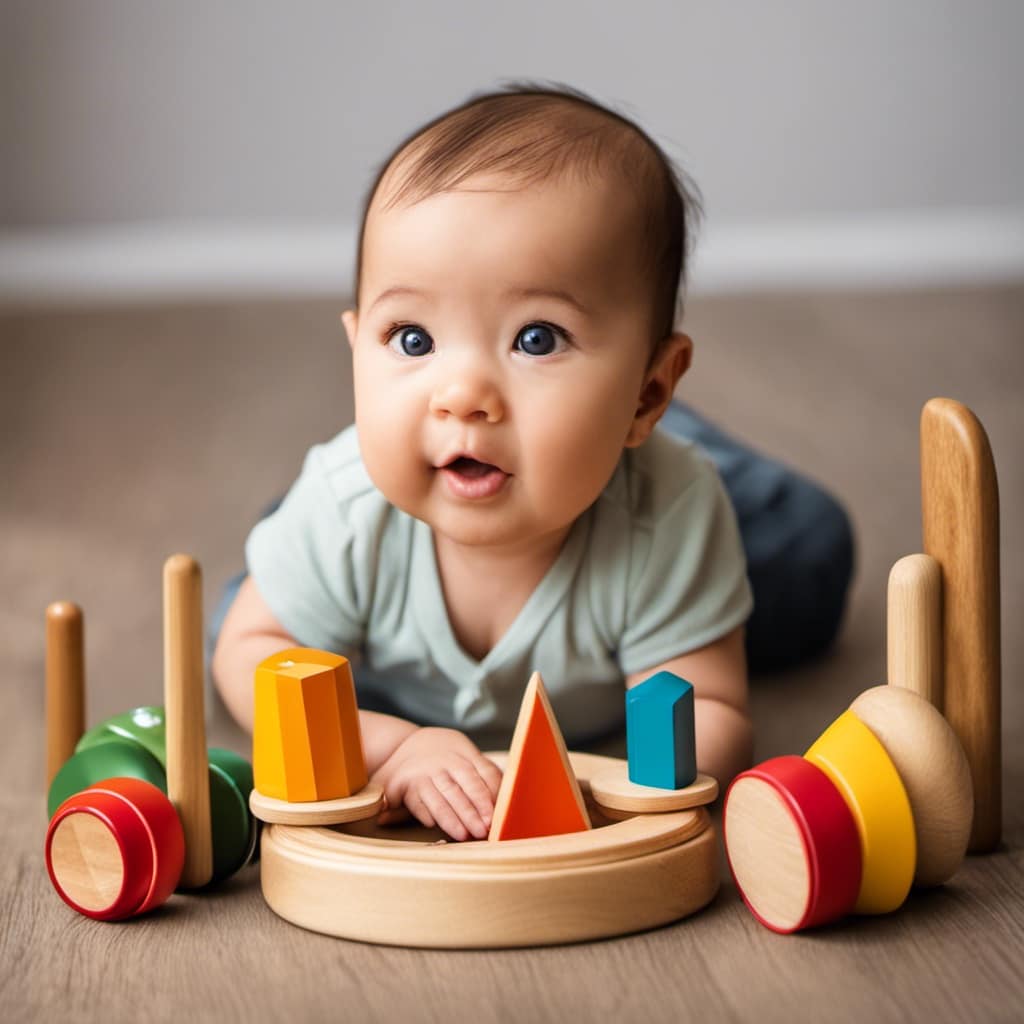
Educational playthings that incorporate different languages can facilitate language learning in a fun and engaging way.
Immersion programs, where children are fully immersed in a second language, have been found to be particularly effective in promoting language acquisition. These programs provide a rich language environment and encourage children to actively engage with the language through play and social interaction.
Fine Motor Skills
Fine motor skills involve the coordination of small muscles in the hands and fingers, and they play a crucial role in our daily activities. Educational playthings can be effective tools in improving these skills, providing children with engaging and purposeful activities.
Here are three ways in which educational playthings can enhance our fine motor skills:
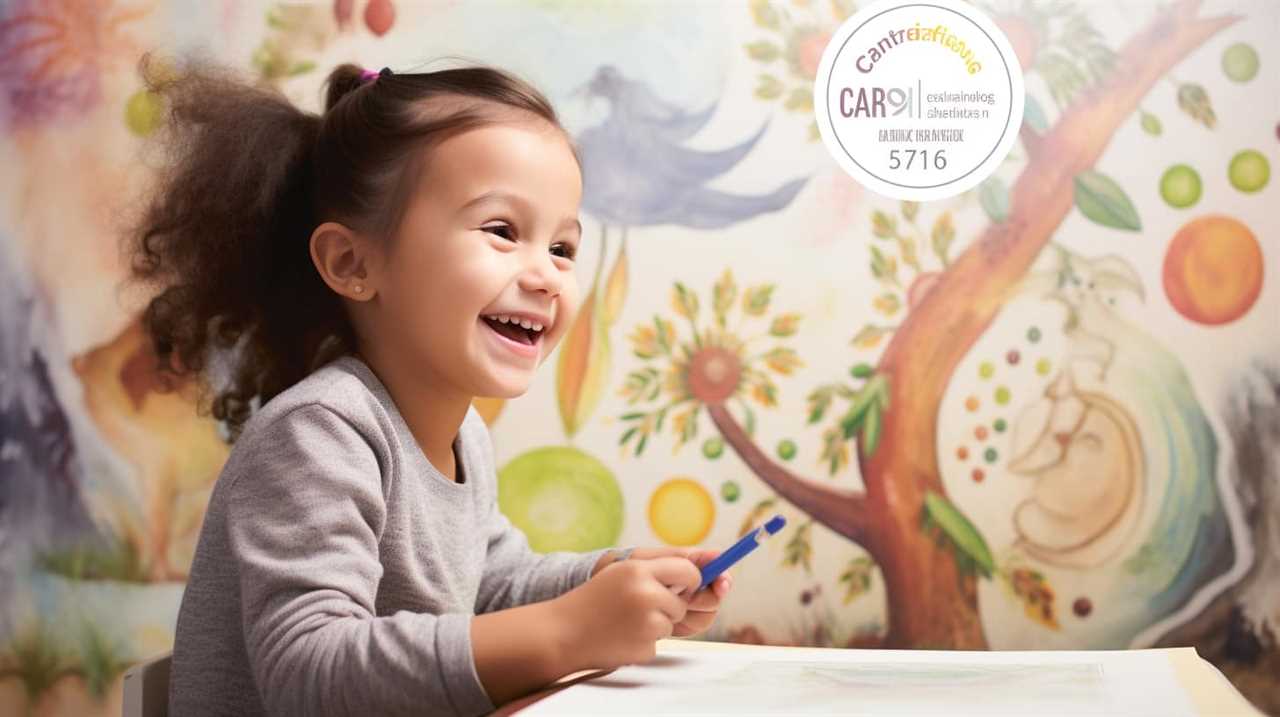
-
Promoting hand-eye coordination: Playthings that require precise hand movements, such as building blocks or puzzles, help children develop hand-eye coordination. By manipulating objects, children learn to synchronize their hand movements with what they see, improving their ability to perform tasks that require precision.
-
Enhancing sensory development: Many educational playthings are designed to stimulate different senses, such as touch and sight. By engaging with these playthings, children develop their sensory perception and refine their fine motor skills. For example, playing with sensory balls or textured toys can help strengthen the muscles in the hands and fingers.
-
Encouraging finger dexterity: Playthings that involve activities like squeezing, twisting, or picking up small objects can improve finger dexterity. These actions require children to use their fingers in a controlled and coordinated manner, leading to the development of fine motor skills.
Creativity and Imagination
Now that we’ve explored how educational playthings enhance our fine motor skills, let’s delve into the subtopic of ‘Creativity and Imagination’ by asking: What role do educational playthings play in fostering creativity and imagination?

Research suggests that educational playthings have a significant impact on nurturing creativity and imagination in individuals. By engaging in imaginative play, children are able to explore different scenarios, problem solve, and think critically. This type of play encourages divergent thinking, allowing children to generate multiple solutions to a problem.
Educational playthings such as building blocks, puzzles, and art supplies provide children with the tools to express their creativity and develop their problem-solving skills. Through these activities, children can explore their own ideas, experiment with different materials, and challenge themselves to think outside the box.
Frequently Asked Questions
How Can Educational Playthings Help Improve Cognitive Development in Children?
Educational playthings, like puzzles and building blocks, enhance memory and develop critical thinking skills in children. By engaging in hands-on activities, they stimulate brain development and promote cognitive growth from an early age.
What Strategies Can Be Used to Enhance Problem-Solving Skills Through Play?
To enhance problem-solving skills through play, we can use strategies like encouraging critical thinking and logical reasoning. By engaging in educational play, children develop these skills, leading to better problem-solving abilities in various areas of their lives.
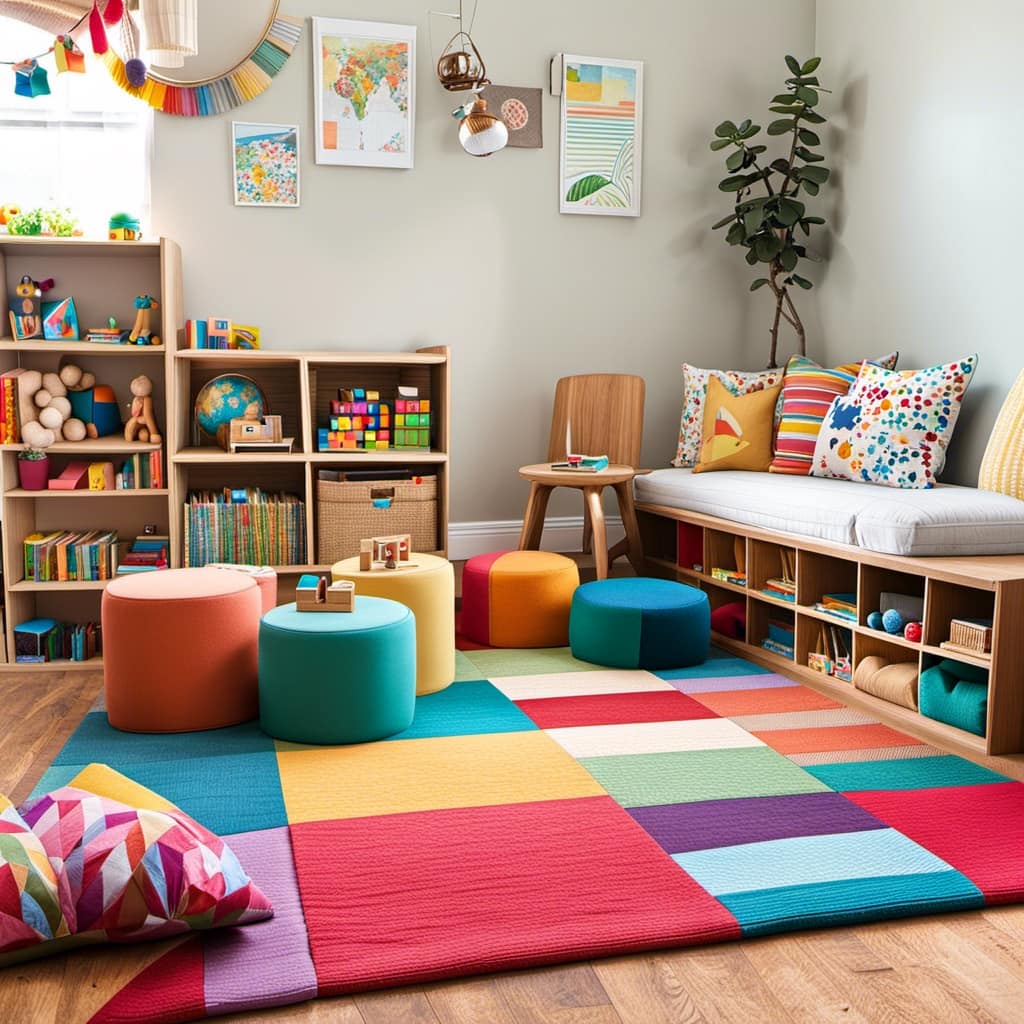
What Are Some Ways in Which Educational Playthings Can Support Language Acquisition?
Educational playthings support language acquisition by promoting vocabulary expansion and speech development. They provide interactive experiences that engage children in meaningful conversations, storytelling, and word recognition activities, enhancing their linguistic skills.
How Do Fine Motor Skills Benefit From Engaging With Educational Playthings?
Engaging with educational playthings enhances fine motor skills, promoting coordination and dexterity. This hands-on experience stimulates sensory development, allowing us to explore and manipulate objects, fostering cognitive growth and overall brain power.
What Role Does Creativity and Imagination Play in the Development of Children When Using Educational Playthings?
Creativity and imagination are essential in the development of children when using educational playthings. They foster innovation and critical thinking. By encouraging open-ended play, children can explore and problem-solve, promoting cognitive growth and enhancing brain power.
Conclusion
In conclusion, educational playthings have proven to be valuable tools for boosting brain power in children.
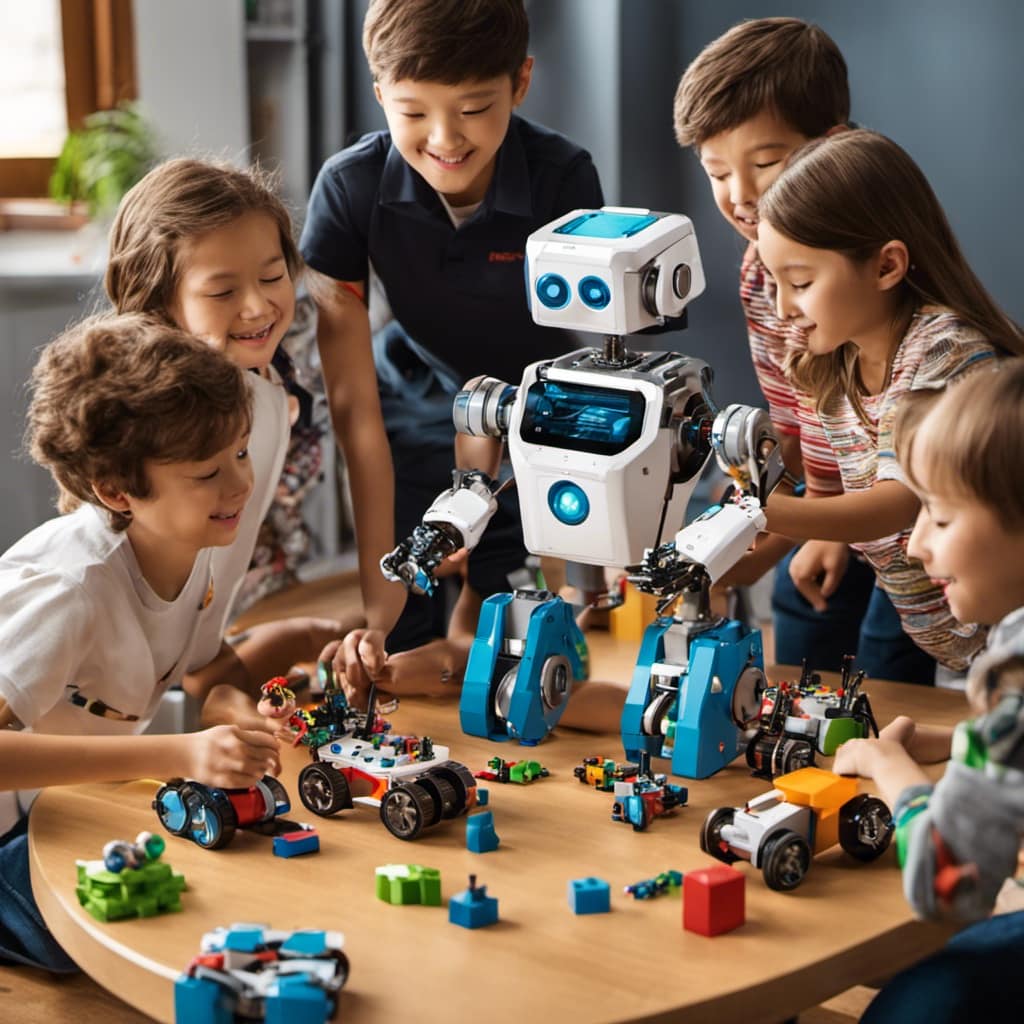
Through cognitive development, problem-solving skills, language acquisition, fine motor skills, and creativity and imagination, these playthings contribute to holistic learning experiences.
They serve as catalysts for intellectual growth and provide opportunities for children to explore and develop various cognitive abilities.
As the saying goes, ‘A child’s mind is like a sponge,’ and with the right educational playthings, we can ensure that their brains soak up knowledge and skills effortlessly.



